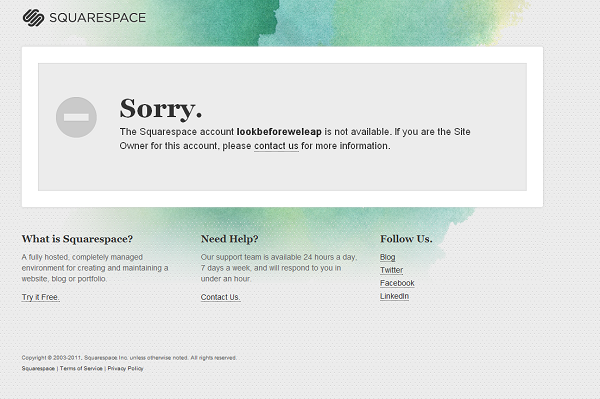
Fast, affordable Internet access for all.

 As you read this, remember that the FCC's National Broadband Plan largely places the future of Internet access in the hands of these corporations.
As you read this, remember that the FCC's National Broadband Plan largely places the future of Internet access in the hands of these corporations.The Internet is no more capable than the infrastructures that carry it. Here in the U.S. most of the infrastructures that carry the Internet to our homes are owned by telephone and cable companies. Those companies are not only in a position to limit use of the Internet for purposes other than those they favor, but to reduce the Net itself to something less, called “broadband.” In fact, they’ve been working hard on both.There is a difference between the Internet and "broadband." Broadband is a connection that is always on and tends to be somewhat faster than the dial-up speeds of 56kbps. Broadband could connect you to anything... could be the Internet or to an AOL like service where some company decides what you can see, who you can talk to, and the rules for doing anything. The Internet is something different. It is anarchic, in the textbook definitional sense of being leaderless. It is a commons. As Doc says,
The Internet’s protocols are NEA:Because no one owns it, few promote it or defend. Sure, major companies promote their connections to it (and when you connect to it, you are part of it) but they are promoting the broadband connection. And the biggest ones (Comcast, AT&T, Verizon, Time Warner Cable, etc) will do anything to increase the profits they make by being one of the few means of connecting to the Internet -- including charging much more and limiting what people can do over their connection, etc. This is one reason the connections from major corporations are so heavily tilted toward download speeds -- they want consumers to consume content. Just about every community network built in the last 3-4 years offers symmetrical connections by contrast.
- Nobody owns them.*
- Everybody can use them, and
- Anybody can improve them.
Last I heard, the fastest cable offering in the upstream direction was 12Mbps. Cox, our cable provider in Santa Barbara, gives us about 25Mbps down, but only 4Mbps up. Last time I talked to them (in June 2009), their plan was to deliver up to 100Mbps down eventually, but still only about 5Mbps up.
These numbers are likely to grow even starker as the 30 percent of Americans without any kind of Internet access come online. When they do, particularly if the next several years deliver subpar growth in personal income, they will probably go for the only option that is at all within their reach: wireless smartphones. A wired high-speed Internet plan might cost $100 a month; a smartphone plan might cost half that, often with a free or heavily discounted phone thrown in. The problem is that smartphone access is not a substitute for wired. The vast majority of jobs require online applications, but it is hard to type up a résumé on a hand-held device; it is hard to get a college degree from a remote location using wireless. Few people would start a business using only a wireless connection.She identifies the problem as a lack of competition in the market while highlighting the role of lobbying from the wealthy cable companies to keep it that way:
The bigger problem is the lack of competition in cable markets. Though there are several large cable companies nationwide, each dominates its own fragmented kingdom of local markets: Comcast is the only game in Philadelphia, while Time Warner dominates Cleveland. That is partly because it is so expensive to lay down the physical cables, and companies, having paid for those networks, guard them jealously, clustering their operations and spending tens of millions of dollars to lobby against laws that might oblige them to share their infrastructure.In this essay, her preferred solution is better federal regulation that would require companies that own networks to share parts of their infrastructure with competitors (to significantly reduce the problems of natural monopoly). Unfortunately, she did not explicitly discuss the solution of the communities building their own networks - a topic she has discussed at great length elsewhere in very positive terms.
The lawsuit claims that, since at least July 2001, AT&T has filed monthly and annual reports listing fewer business phone lines than they actually provide. Under Tennessee law, phone companies must pay $3 per month per line to pay for 911 access. ... In a March phone service bid proposal for Hamilton County, AT&T stated it would not collect the $3 rate and instead collect $2 per line per month. That allowed the company to underbid the next lowest bidder by 69 cents per line per month, “unlawfully increasing its profits at the expense of revenue to support the critical emergency services that” 911 provided, according to court records.A difference of $.69 may not seem like much, until you consider they may be providing 1,000 lines - which is a difference of $690/month or $8,280/year.
 It is an incredible racket. AT&T gets more high-margin customers, pays less in fees than competitors, and the only people who get hurt are those who depend on 9-11.
Just when you think AT&T is brilliantly evil (an accusation I tend not to make against many corporations no matter how much I disapprove of their practices), you have to consider how incredibly incompetent they are.
It is an incredible racket. AT&T gets more high-margin customers, pays less in fees than competitors, and the only people who get hurt are those who depend on 9-11.
Just when you think AT&T is brilliantly evil (an accusation I tend not to make against many corporations no matter how much I disapprove of their practices), you have to consider how incredibly incompetent they are. The Times-Call has a hopeful reflection about the broadband battle (somewhat classier than the hilarious Neener Neener Neener poke at Comcast).
The Times-Call has a hopeful reflection about the broadband battle (somewhat classier than the hilarious Neener Neener Neener poke at Comcast).
This time, lobbyists for the telecommunications industry spent even more than they did last time -- about $300,000 -- in trying to convince residents that the city having control over its own property was somehow "risky." Obviously, the lobbyists, including the euphemistically monikered Americans for Prosperity, were only concerned about the welfare of Longmont residents and the health of the local economy. They spent so much money to show just how concerned they were. But the majority of the voters weren't buying what they were selling. People had the audacity to think for themselves and make up their own minds. Personally, I would thank the anti-2A folks for pouring so much money into the local economy, except most of its spending was elsewhere. They did pop for a few ads in this newspaper, though, so for that they have my gratitude.The author, Tony Kindelspire, goes on to note just how amazing it was to see everyone unified on an issue.
Dane Jasper, the CEO of Sonic.net, one of the few ISPs to survive the death of broadband competition over the past ten years, wrote about "America's Intentional Broadband Duopoly." It is a short history of how the FCC's flawed analysis (helped along by incredible amounts of lobbying dollars, no doubt).
He starts by asking when the last time anyone offered to sell you broadband over power lines (BPL). The FCC decided that cable and telephone companies shouldn't have to share their wires (which are a natural monopoly) with competitors (creating an actual marketplace for services) because BPL, satellite, and wireless would put so much competitive pressure on DSL and cable. FAIL.
Then, in the Brand X decision, they ruled that Cable would not be required to allow competitors to lease their lines either. The FCC did this by reclassifying broadband Internet access as an “information service”, rather than a “telecommunications service”. As a result, common carriage rules could be set aside, allowing for an incumbent Cable monopoly. This decision was challenged all the way to the supreme court, who ruled in 2005 that the FCC had the jurisdiction to make this decision. To close out Powell’s near-complete dismantling of competitive services in the U.S., the FCC took up the issue of ISPs resale of DSL using the incumbent’s equipment, also known as wholesale “bitstream” access. If Cable is an information service under Brand X, why shouldn’t Telco have the same “regulatory relief”? The result: the FCC granted forbearance (in other words, declined to enforce its rules) from the common carriage requirements for telco DSL services.For those who are thinking that wireless is finally competitive with cable and DSL, don't forget that while 4G appears much faster (because so few people are using it presently), it still comes with a 2GB monthly cap. So if you want to do something with your connection aside from watching one movie a month, 4G is not competitive with a landline connection.
A common misconception is that local governments award exclusive (or monopolistic) franchises to cable companies and that is why the US has so little cable competition. However, no local government has done this since the 1996 Telecommunications Act 1992 Cable Act made the practice illegal.
But even before the '96 Telecom Act '92 Cable Act, local governments tended to award non-exclusive contracts to cable companies because they wanted more competition, not less -- as illustrated in this article about Cox preparing to renew its franchise agreement with New Orleans.
Federal laws and Federal Communications Commission decisions also have sharply curtailed the city's negotiating ability. Even if other companies were seeking permission to provide cable to local customers, said William Aaron, a legal adviser to the council on telecommunications issues, council members could not arbitrarily refuse to renew the Cox franchise. The council could do that only on the basis of certain limited criteria, such as that the company has not lived up to the terms of the 1995 agreement. Cox has had a nonexclusive franchise to operate in Orleans Parish since 1981, meaning that other companies also can apply to provide cable services, though none has done so. The franchise was renewed in 1995.For years, state and federal policies have limited local authority to require just compensation for access to the valuable right-of-way because the cable and telephone companies pretended that they would invest more and create competition if local authority were preempted. Local authority has been significantly preempted in many communities without any real increase in competition or lowering of prices. No surprise there - another victory for companies better at lobbying than providing essential services.
 So who exactly is "Look Before We Leap?" They cannot point to any real local support in the community.
So who exactly is "Look Before We Leap?" They cannot point to any real local support in the community.